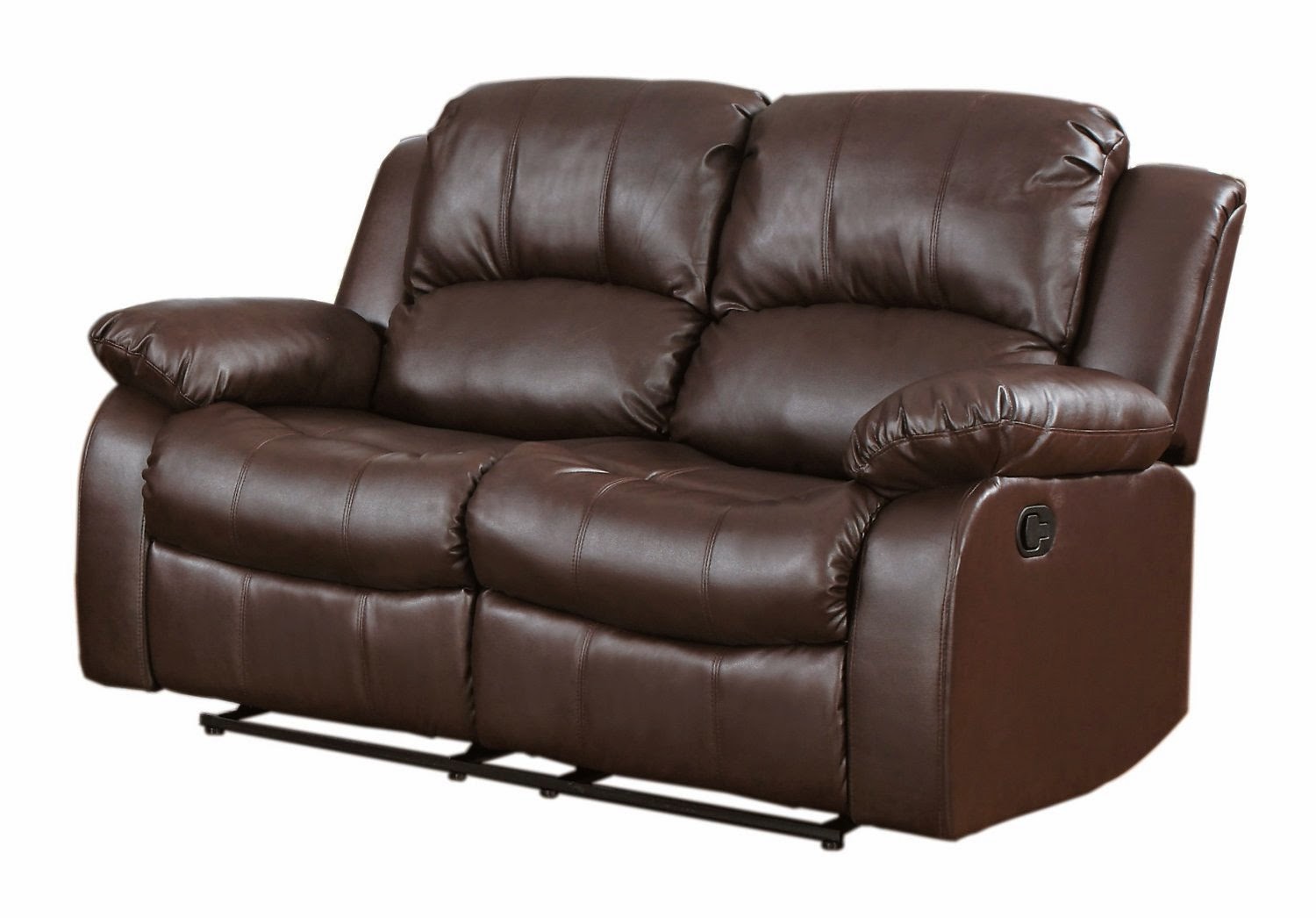Feng Shui Dining Room Tips
The dining room is an important space in the home, as it is where we gather to share meals with our loved ones. Feng shui is the ancient Chinese practice of arranging our environment to create a harmonious and balanced flow of energy. Feng shui can be applied to every room in the home, including the dining room. Here are 10 feng shui tips to feng shui your dining room for a more peaceful and harmonious space.
How to Feng Shui Your Dining Room
Before diving into specific feng shui tips for the dining room, it is important to understand the basic principles of feng shui . The main goal of feng shui is to create a balance of energy, known as qi , in a space. This can be achieved through proper placement of furniture, use of color and light, and incorporating natural elements. Now, let's explore how to feng shui your dining room.
Dining Room Feng Shui Ideas
1. Clear the Clutter: Feng shui emphasizes the importance of keeping a clutter-free space to allow for the smooth flow of energy. Make sure your dining room is free of unnecessary items and only keep items that are used regularly or have sentimental value.
2. Use a Round or Oval Dining Table: In feng shui , sharp edges are believed to create negative energy. Opt for a round or oval dining table to promote a more harmonious flow of energy in the room.
3. Choose Calming Colors: The color palette in your dining room can have a significant impact on the energy of the space. For a peaceful and calming atmosphere, stick to feng shui approved colors such as light blues, greens, and neutrals.
4. Incorporate Natural Elements: Nature is an important aspect of feng shui . Bring in natural elements such as plants, wooden furniture, and natural fabrics to create a more balanced and harmonious atmosphere in your dining room.
5. Avoid Overhead Beams: Overhead beams are believed to create a heavy and oppressive energy in a space. If your dining room has overhead beams, consider covering them with a false ceiling or painting them in the same color as the ceiling to minimize their impact.
6. Place the Dining Table in the Command Position: In feng shui , the command position is the spot in a room where you have a clear view of the door without being directly in line with it. This position is believed to give you a sense of control and security. Place your dining table in the command position to promote a sense of balance and control during meals.
7. Use Proper Lighting: Lighting is an important aspect of feng shui , as it represents the element of fire. Make sure your dining room has adequate lighting to create a warm and inviting atmosphere. Avoid harsh overhead lighting and instead opt for soft, warm lighting options.
8. Incorporate a Mirror: Mirrors are believed to reflect and amplify energy in a space. Place a mirror in your dining room to create the illusion of a larger space and to reflect the abundance of food during meals. Just make sure the mirror does not reflect any negative energy, such as a cluttered area.
9. Use a Rug: A rug can help to ground the energy in your dining room and create a more cozy and inviting atmosphere. Choose a rug with a pattern or design that reflects your personal feng shui element.
10. Keep the Dining Room Separate: In feng shui , it is believed that each room in the home has its own energy and purpose. Avoid using your dining room as a multi-purpose space, such as a home office or playroom. This can disrupt the flow of energy and create a sense of chaos in the room.
Feng Shui Dining Room Colors
As mentioned earlier, color is an important aspect of feng shui . Certain colors are believed to promote a more harmonious and balanced energy in the dining room. These include light blues, greens, and neutrals. You can also incorporate splashes of red or orange, as these colors represent the element of fire and can stimulate appetite. Avoid using dark or dull colors, as they can create a heavy and stagnant energy in the room.
Feng Shui Dining Room Layout
The layout of your dining room can also have an impact on the energy of the space. In feng shui , it is believed that the flow of energy should be circular, with no sharp corners or obstacles blocking its path. Make sure there is enough space around the dining table for people to move freely and comfortably.
Feng Shui Dining Room Table
The dining table is the focal point of the dining room, and its placement and size can greatly affect the energy in the space. As mentioned earlier, it is best to use a round or oval table, as sharp edges are believed to create negative energy. The size of the table should also be proportional to the size of the room. Make sure there is enough space around the table for chairs to be pulled out comfortably.
Feng Shui Dining Room Mirror
As mentioned earlier, mirrors can have a significant impact on the energy in a room. When placing a mirror in the dining room, make sure it reflects something positive, such as a beautiful view or abundance of food. Also, avoid placing a mirror directly facing the dining table, as this can create a sense of unease during meals.
Feng Shui Dining Room Lighting
Lighting is an important aspect of feng shui , as it represents the element of fire. Make sure your dining room has adequate lighting, both natural and artificial, to create a warm and inviting atmosphere. Avoid harsh overhead lighting and instead opt for soft, warm lighting options.
Feng Shui Dining Room Decor
The decor in your dining room should reflect your personal style and taste, while also incorporating elements of feng shui . Use natural materials such as wood, stone, and plants to create a more balanced and harmonious atmosphere. You can also incorporate artwork or decor pieces that represent your personal feng shui element.
Feng Shui Dining Room Plants
As mentioned earlier, incorporating natural elements in the dining room can help to promote a more balanced and harmonious energy. Plants are a great way to bring nature indoors and add a touch of greenery to your dining room. Choose plants with round or oval-shaped leaves, as these are believed to represent wealth and abundance in feng shui . Just make sure to keep them well-maintained and free of dead leaves, as this can create stagnant energy.
Feng Shui Your Dining Room for a Harmonious and Balanced Home

Creating a Welcoming and Nourishing Space
 The dining room is often the heart of a home, where families gather to share meals, stories, and laughter. However, if the energy in this space is stagnant or imbalanced, it can affect the overall harmony and well-being of the household. This is where the ancient practice of feng shui comes in – by arranging and decorating your dining room according to its principles, you can create a welcoming and nourishing space for both physical and emotional nourishment.
Feng shui
is all about creating balance and harmony in our living spaces. In the dining room, this means creating a balance between
yin
(the feminine, soft energy) and
yang
(the masculine, strong energy). To achieve this, start by choosing a
color scheme
that reflects the desired energy in the room. Warm, earthy tones such as beige, brown, and terracotta are recommended for a cozy and grounding atmosphere, while cooler tones like blue and green can promote a more calming and serene energy.
The dining room is often the heart of a home, where families gather to share meals, stories, and laughter. However, if the energy in this space is stagnant or imbalanced, it can affect the overall harmony and well-being of the household. This is where the ancient practice of feng shui comes in – by arranging and decorating your dining room according to its principles, you can create a welcoming and nourishing space for both physical and emotional nourishment.
Feng shui
is all about creating balance and harmony in our living spaces. In the dining room, this means creating a balance between
yin
(the feminine, soft energy) and
yang
(the masculine, strong energy). To achieve this, start by choosing a
color scheme
that reflects the desired energy in the room. Warm, earthy tones such as beige, brown, and terracotta are recommended for a cozy and grounding atmosphere, while cooler tones like blue and green can promote a more calming and serene energy.
Positioning the Dining Table for Abundance and Connection
 The placement of the dining table is crucial in feng shui, as it represents the center of nourishment and connection in the household. Ideally, the table should be positioned in the
commanding position
, which is the furthest point from the entrance and facing towards it. This allows for a clear view of anyone entering the room, creating a sense of security and control.
It is also important to avoid placing the dining table under a
ceiling beam
, as this can create a heavy and oppressive energy above the table. If this cannot be avoided, you can hang a
crystal
above the table to help disperse any negative energy and create a more harmonious atmosphere.
The placement of the dining table is crucial in feng shui, as it represents the center of nourishment and connection in the household. Ideally, the table should be positioned in the
commanding position
, which is the furthest point from the entrance and facing towards it. This allows for a clear view of anyone entering the room, creating a sense of security and control.
It is also important to avoid placing the dining table under a
ceiling beam
, as this can create a heavy and oppressive energy above the table. If this cannot be avoided, you can hang a
crystal
above the table to help disperse any negative energy and create a more harmonious atmosphere.
Enhancing the Energy with Decor and Elements
 In feng shui, each area of the home is associated with one of the
five elements
: wood, fire, earth, metal, and water. These elements can be incorporated into the dining room to enhance the energy and create a more balanced space. For example, wood can be represented by
plants
or wooden furniture, fire by
candles
or a fireplace, earth by
earthy
decor or ceramics, metal by
metallic
accents or a chandelier, and water by a
fountain
or a painting of water.
Lastly, it is important to keep the dining room clutter-free and well-lit to allow for the free flow of energy and promote a sense of abundance. With these
feng shui
tips, you can create a dining room that not only looks beautiful but also nourishes and harmonizes the energy in your home. So go ahead and feng shui your dining room for a happier and more balanced household.
In feng shui, each area of the home is associated with one of the
five elements
: wood, fire, earth, metal, and water. These elements can be incorporated into the dining room to enhance the energy and create a more balanced space. For example, wood can be represented by
plants
or wooden furniture, fire by
candles
or a fireplace, earth by
earthy
decor or ceramics, metal by
metallic
accents or a chandelier, and water by a
fountain
or a painting of water.
Lastly, it is important to keep the dining room clutter-free and well-lit to allow for the free flow of energy and promote a sense of abundance. With these
feng shui
tips, you can create a dining room that not only looks beautiful but also nourishes and harmonizes the energy in your home. So go ahead and feng shui your dining room for a happier and more balanced household.



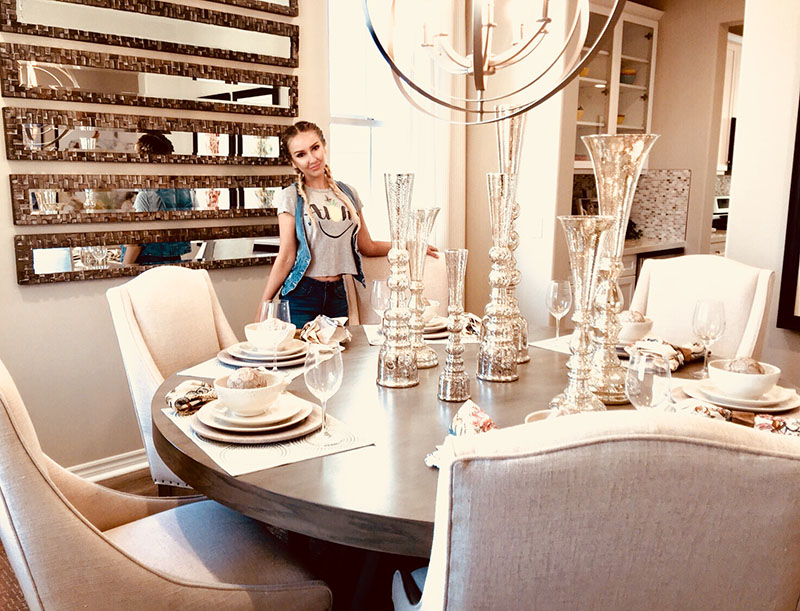

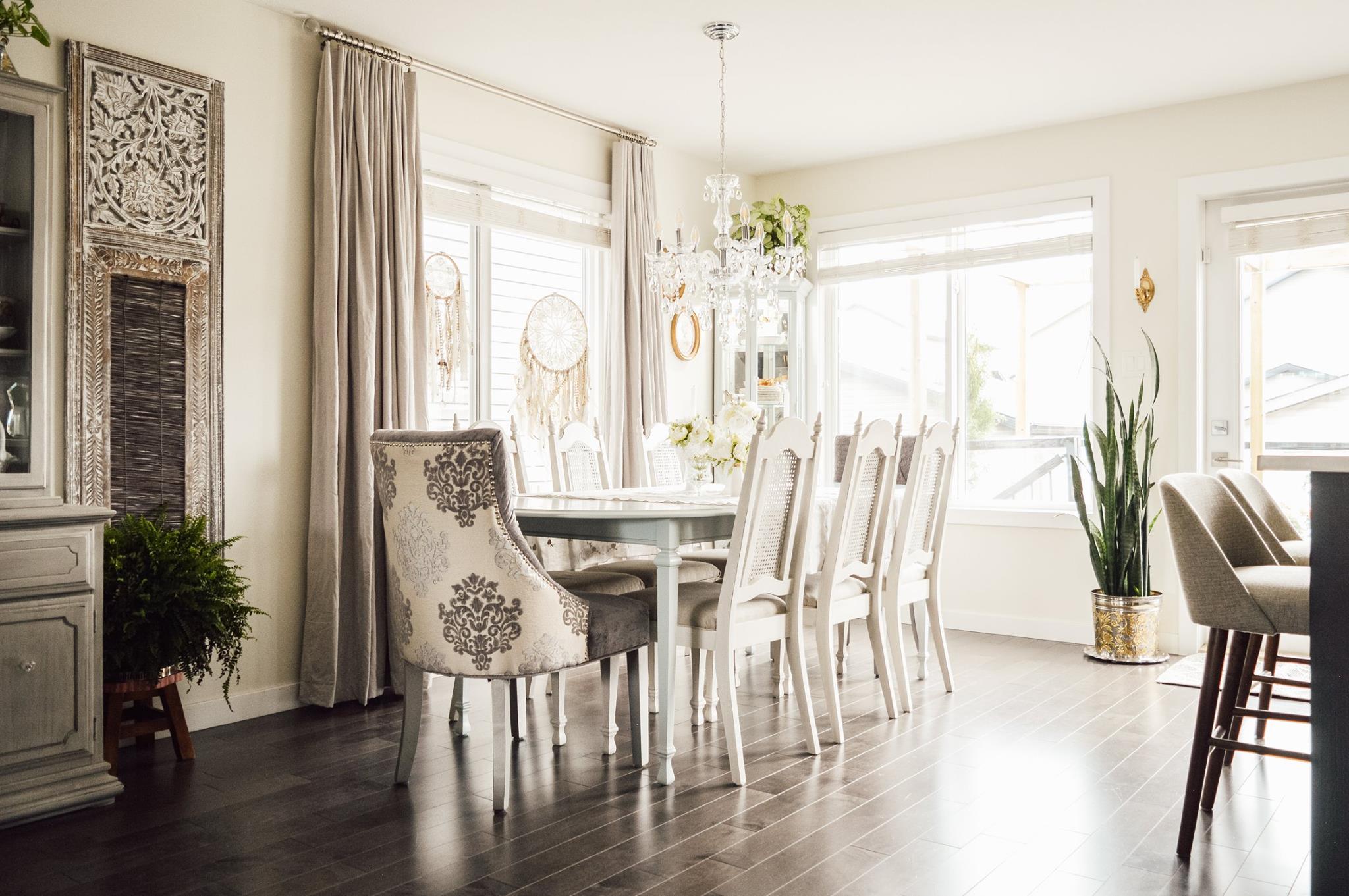
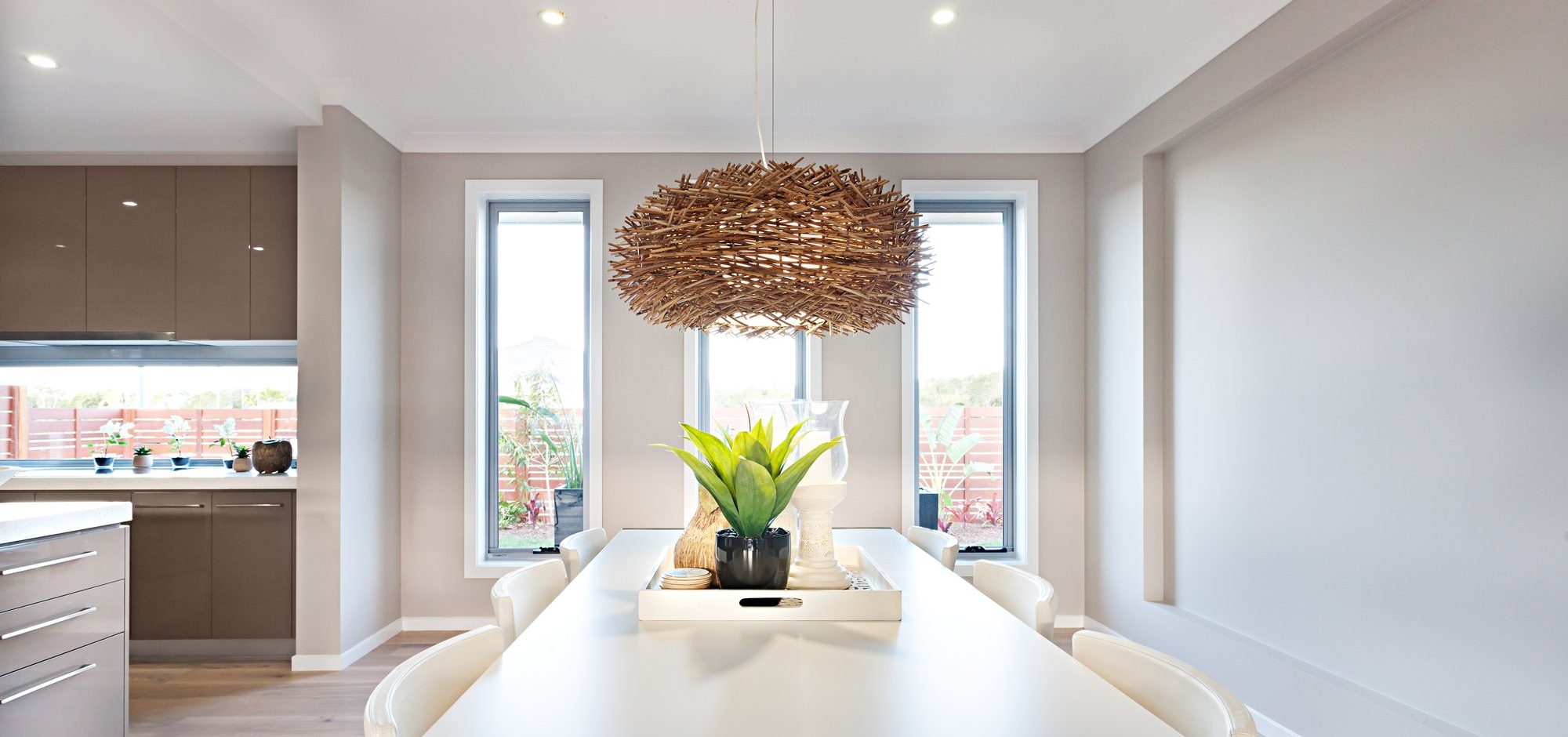
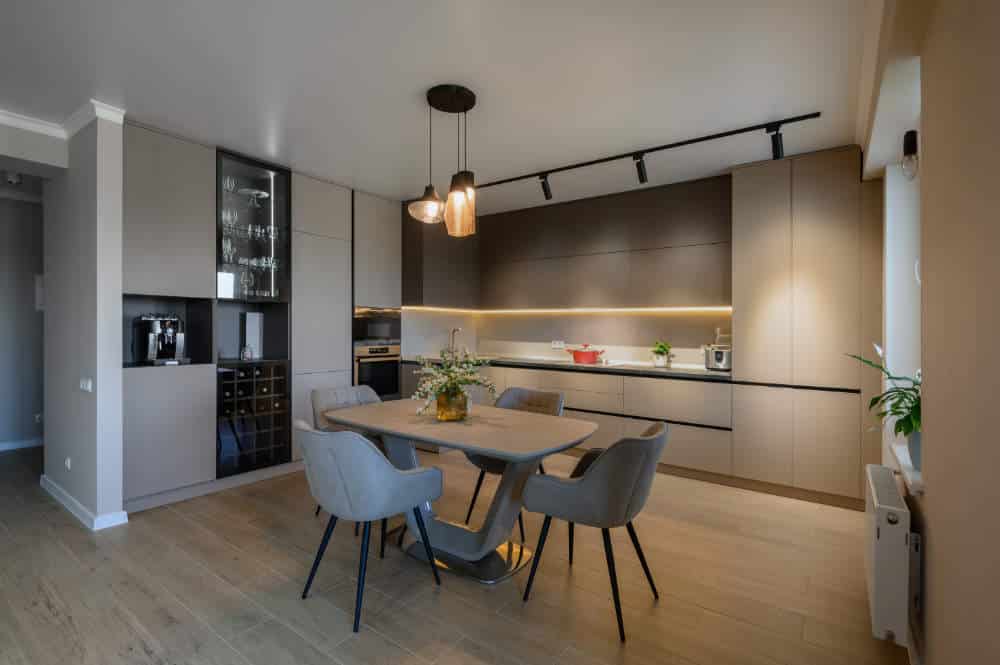
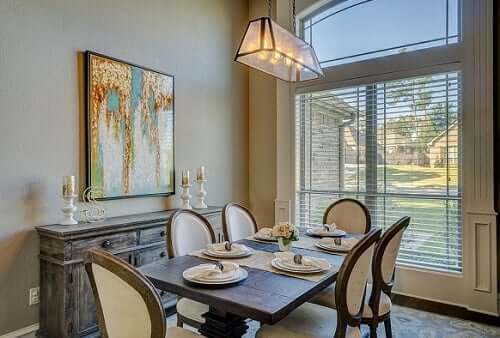



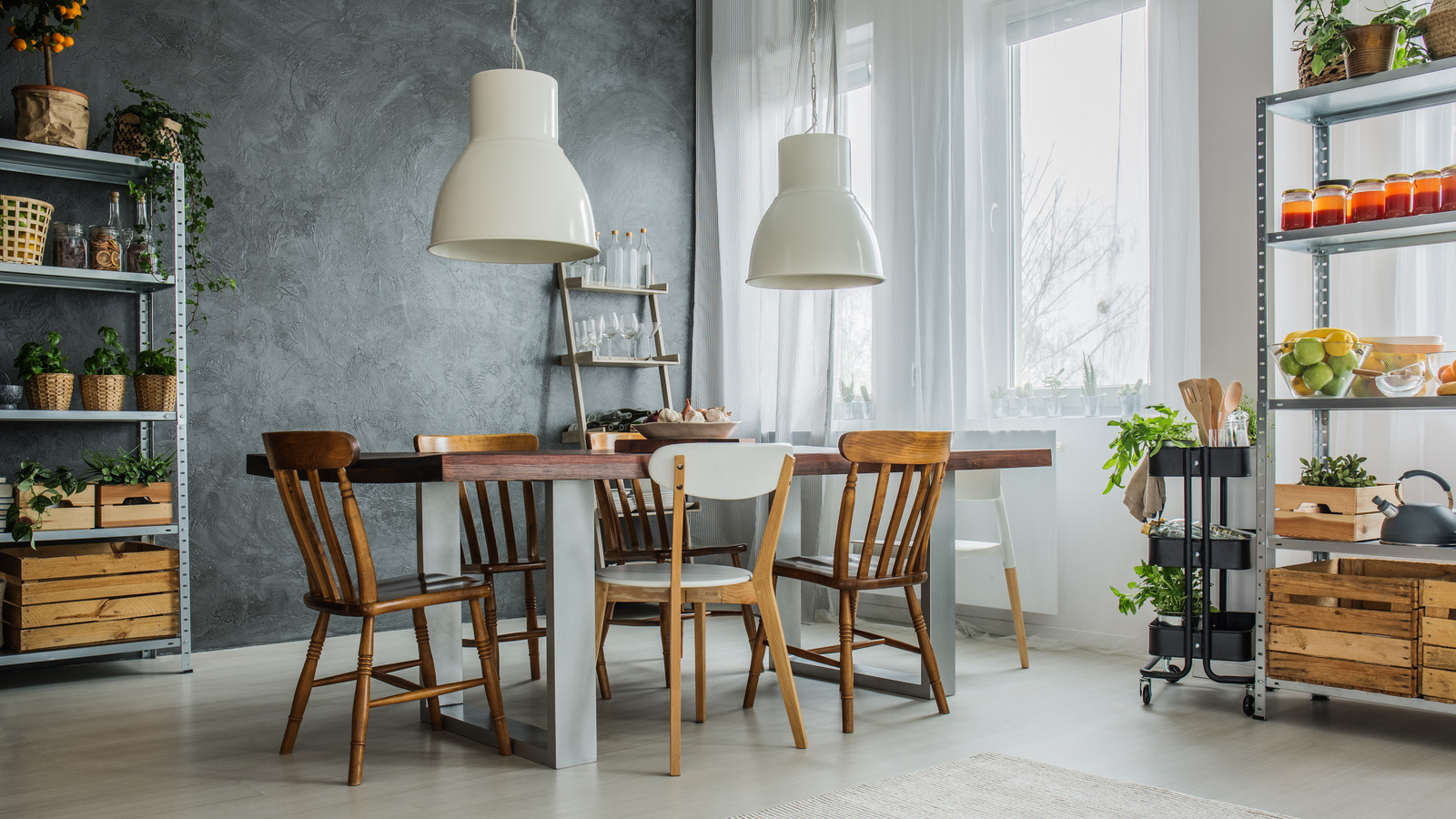



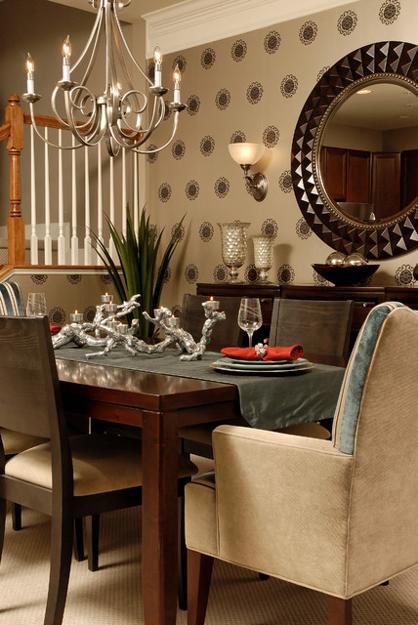



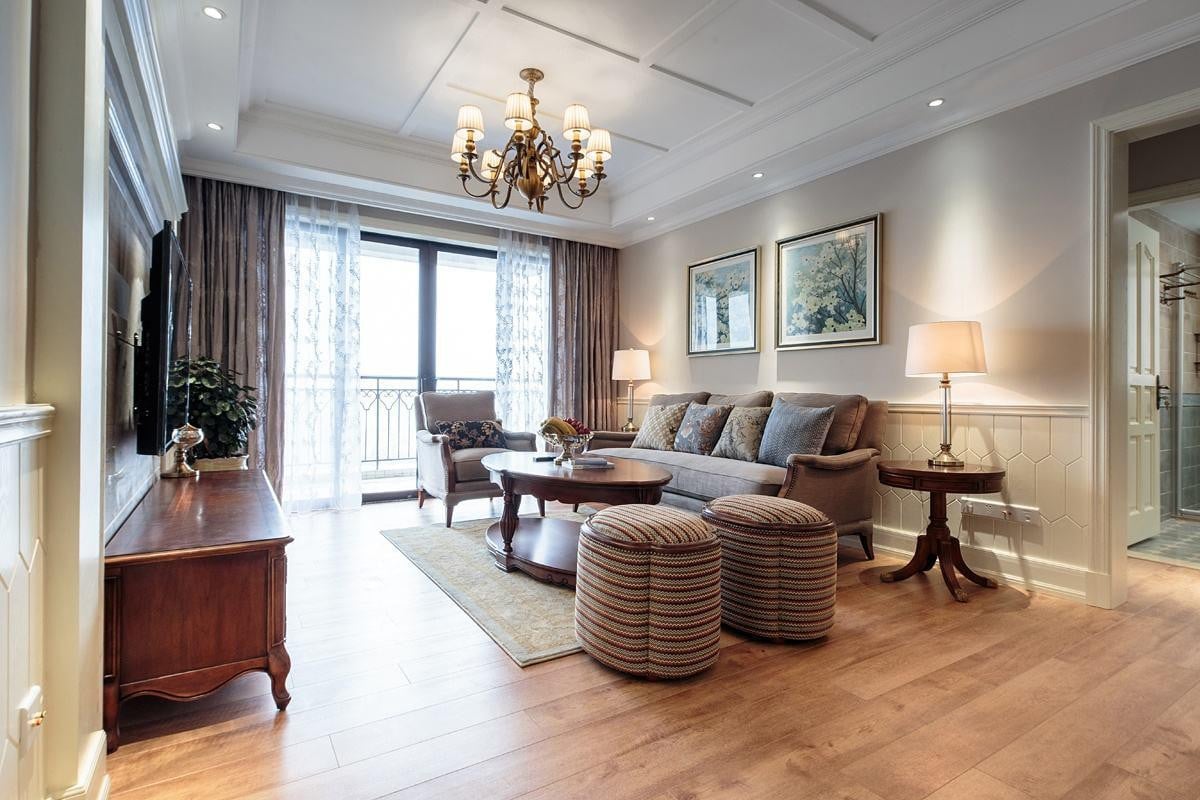

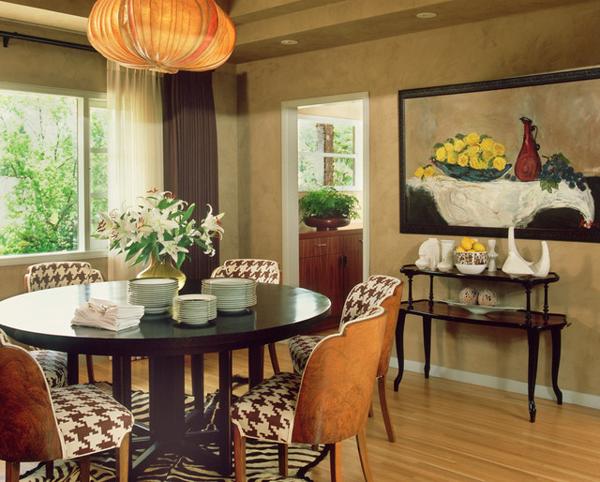
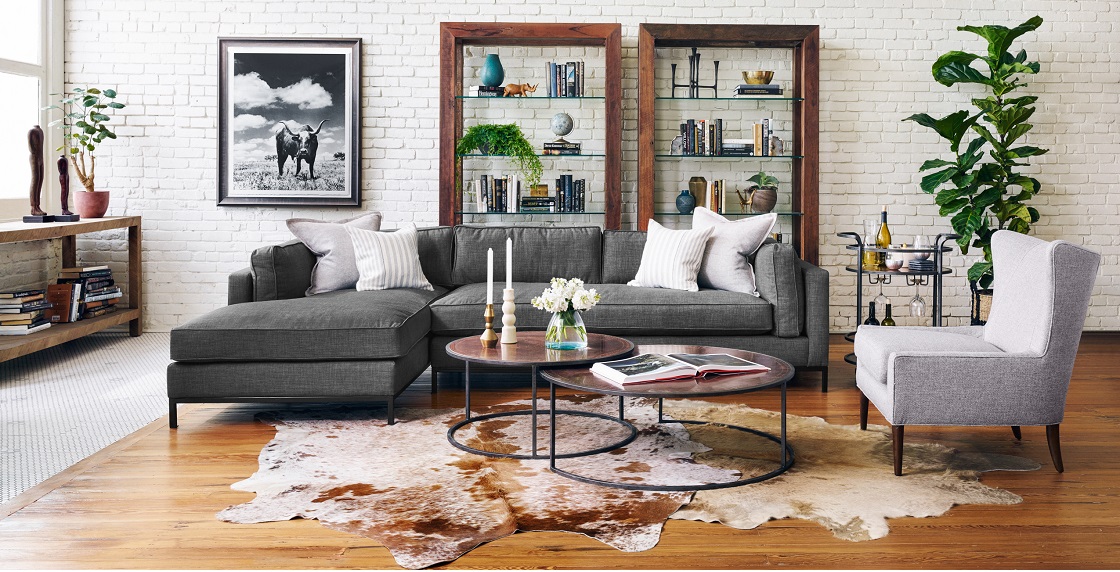






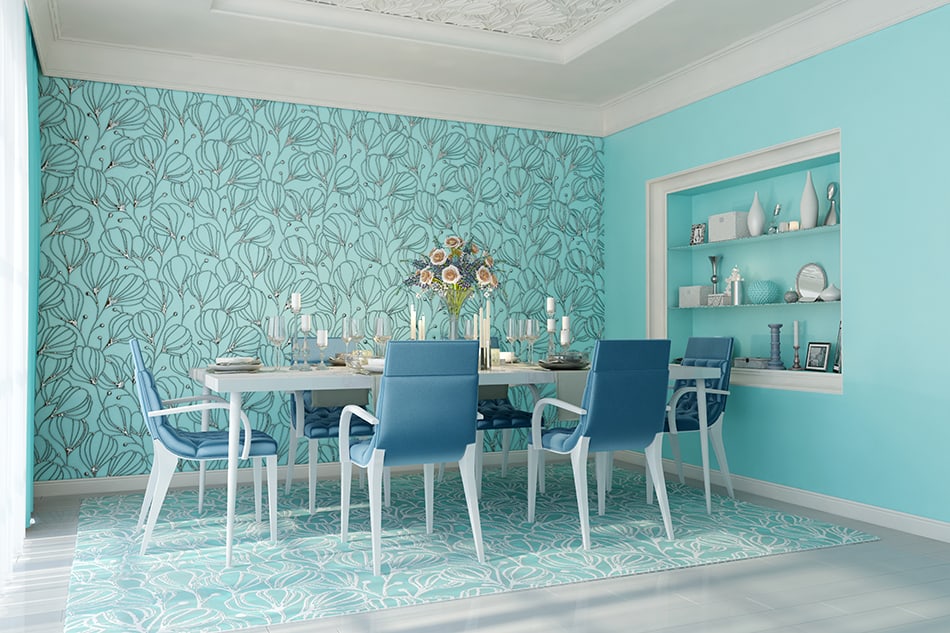

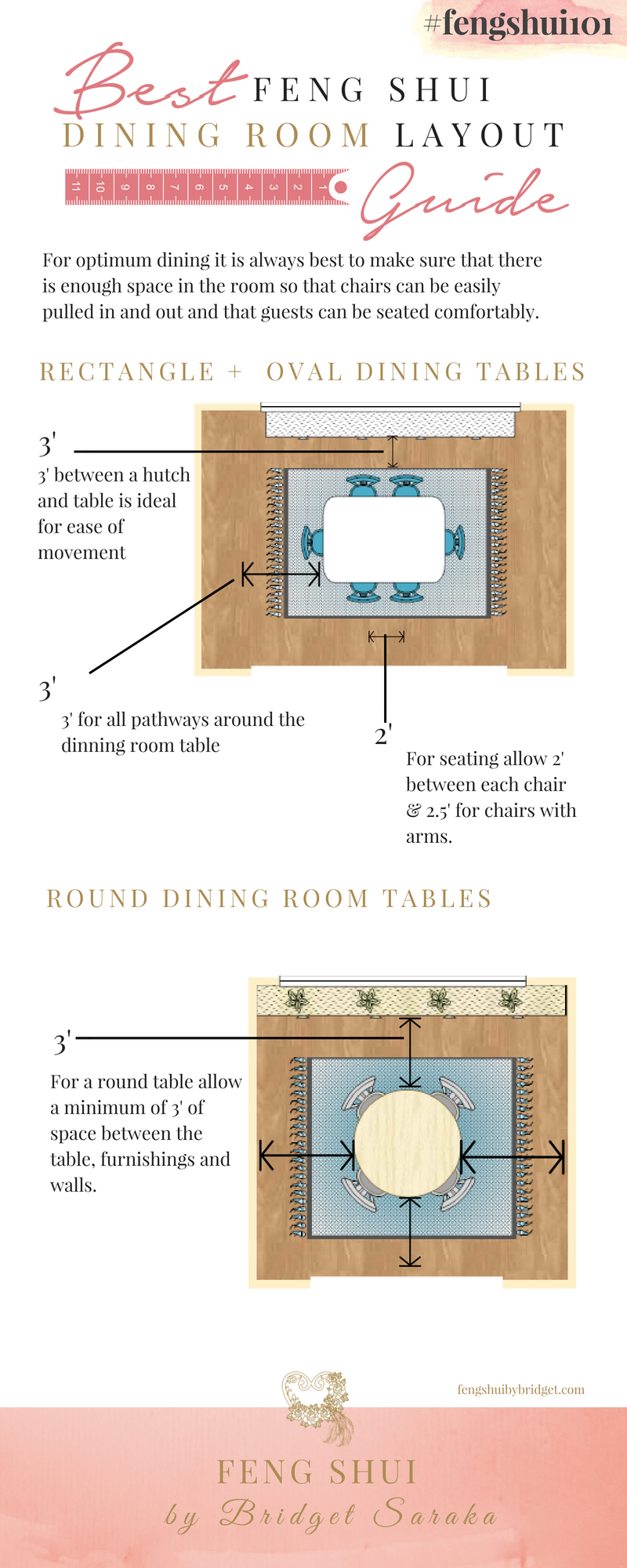



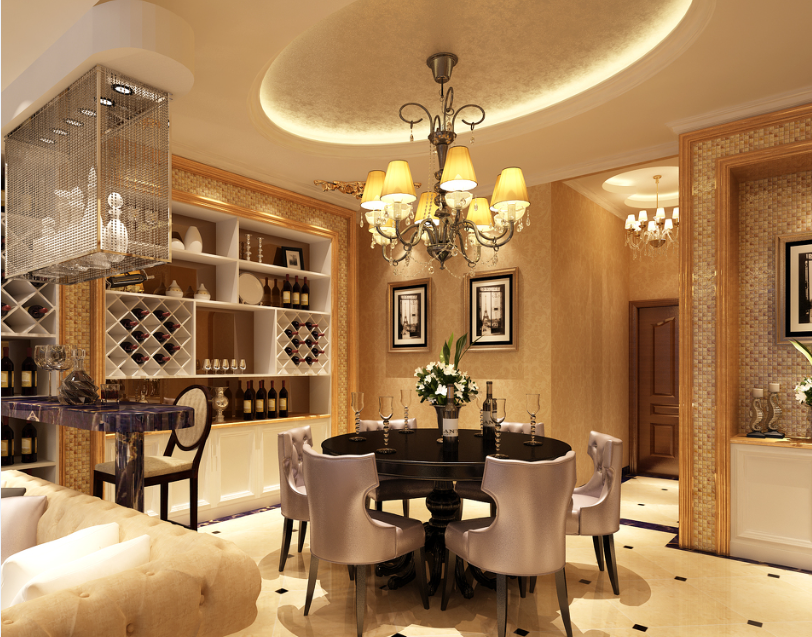

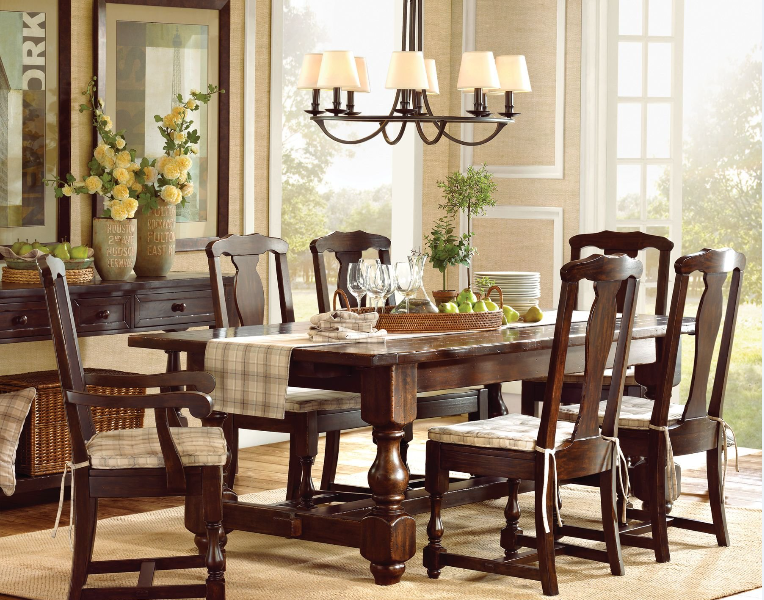







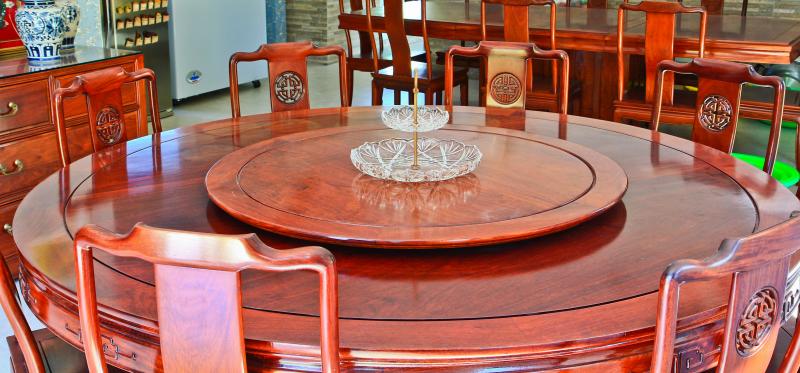


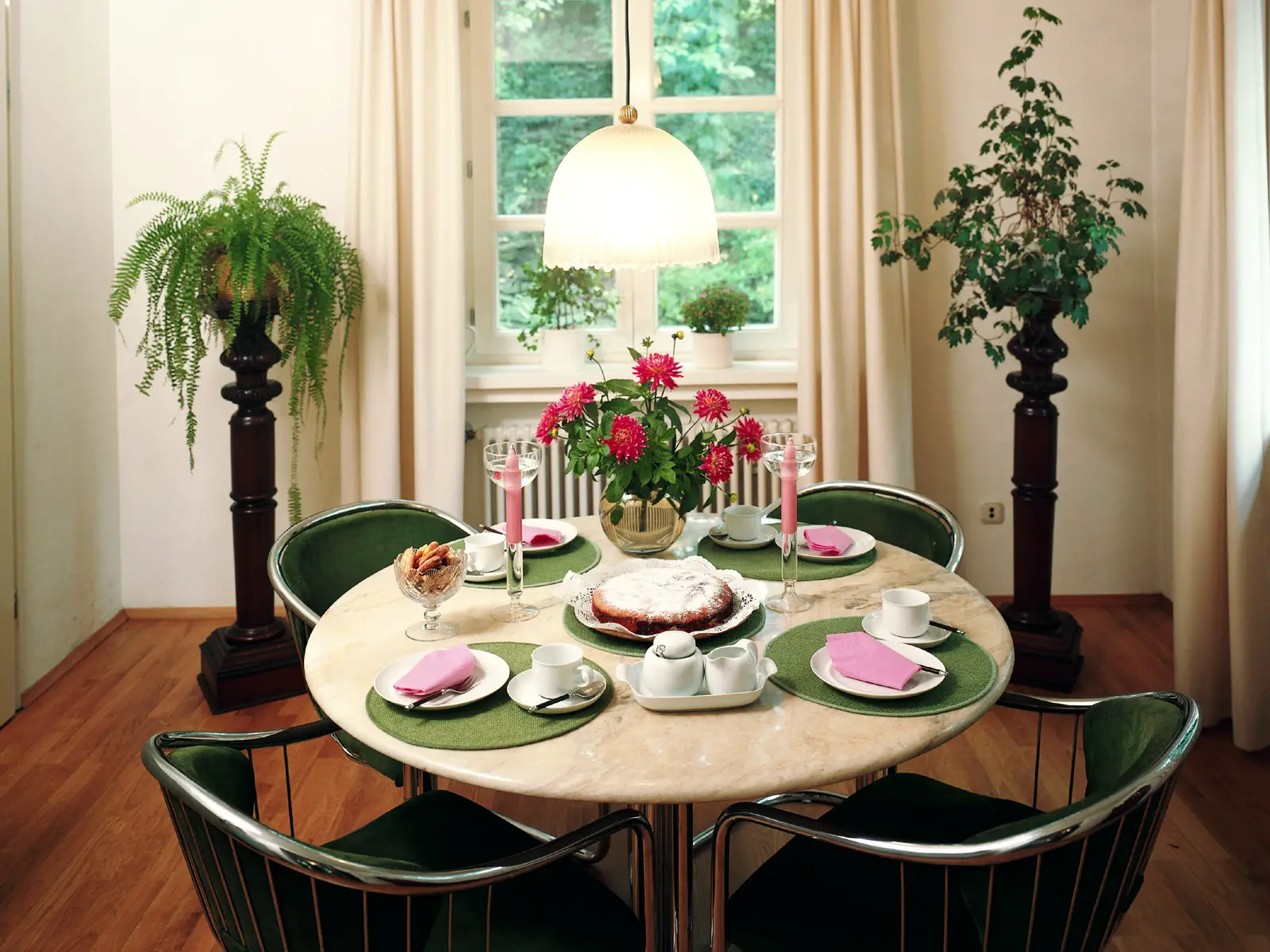





:max_bytes(150000):strip_icc()/spacejoy-AAy5l4-oFuw-unsplash-04a8d5ee6e56453b9b17fd4e42ec894b.jpg)





















